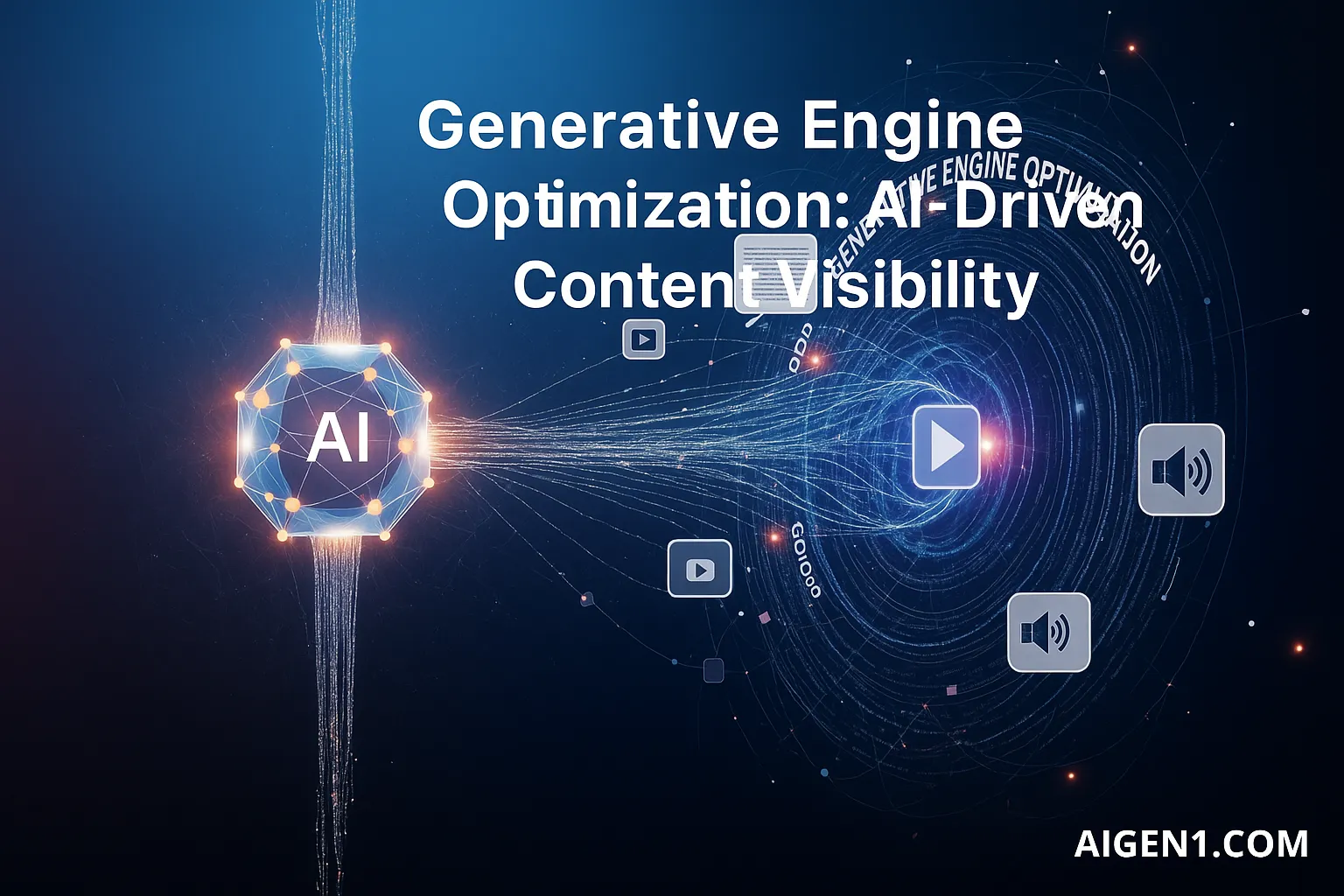Table of Contents
- Introduction
- What is Generative Engine Optimization (GEO)?
- Why GEO Matters in the Age of AI
- Key Elements of Generative Engine Optimization
- How GEO Differs from Traditional SEO
- Benefits of Generative Engine Optimization
- Challenges in Implementing GEO
- Future Trends in GEO and AI Search
- FAQs
- Conclusion
Introduction
Generative Engine Optimization (GEO) is emerging as the next big shift in digital marketing. As AI-driven search engines like Google’s SGE (Search Generative Experience), ChatGPT, and other conversational platforms become the primary way users discover information, traditional SEO strategies are no longer enough. Businesses now need to optimize content not just for search engines, but for AI engines that generate answers, summaries, and recommendations.
In this new era of AI-driven content visibility, GEO ensures that your brand, product, or service appears prominently in AI-generated responses. Unlike traditional SEO, which is mainly about ranking higher on Google’s search results, GEO (Generative Engine Optimization) is about making your content easy for AI systems to find, trust, and use in their answers.

What is Generative Engine Optimization (GEO)?
Generative Engine Optimization is the process of optimizing content so it can be easily understood, selected, and surfaced by AI-powered search engines and chatbots. Instead of just ranking web pages, these AI engines:
- Summarize content,
- Provide direct answers,
- Compare options,
- And even make purchase recommendations.
This means GEO goes beyond keyword optimization. It involves structuring content for AI training models, enhancing trust signals, and writing conversational, semantically rich content.
Why GEO Matters in the Age of AI
The way people search is rapidly changing. Instead of typing a keyword like “best insurance plans”, users are asking AI assistants:
“Which family insurance plan is best in the USA for 2025?”
“Compare life insurance vs health insurance for families.”
For example, instead of just showing a list of 10 website links, AI search tools like Google SGE or ChatGPT give users direct answers to their questions. If your content is not optimized for GEO, it may never be cited in those AI-generated responses.
By 2025, studies show that over 60% of online queries will be AI-powered answers instead of traditional search results. GEO is the only way to stay visible in this shift.
Key Elements of Generative Engine Optimization
Structured Data & Schema Markup
AI engines rely on structured data to understand context. Using schema markup (like FAQ, HowTo, Product, Article) makes it easier for generative engines to pull your content into responses.
Authority & Trust Signals
AI prefers content from trusted sources. Signals like backlinks, brand mentions, reviews, and E-E-A-T (Experience, Expertise, Authoritativeness, Trustworthiness) are critical.
Conversational and Semantic Content
Generative engines answer questions in natural language. Your content must be written conversationally, answering who, what, why, and how queries. Adding FAQs, definitions, and examples improves AI visibility.
AI-Ready Keywords & Phrasing
So, instead of only targeting short keywords like “insurance USA”, GEO focuses on longer, question-style searches that match how people talk, such as:
“What are the best online insurance plans for families in 2025?”
“How does AI in finance improve risk management?”
How GEO Differs from Traditional SEO
Traditional SEO → Optimize for Google’s top 10 links.
GEO → Optimize for AI engines that generate one summarized answer.
Traditional SEO cares about:
- Meta titles, backlinks, keyword density.
GEO cares about:
- Structured data, conversational context, credibility signals, and AI training alignment.
Benefits of Generative Engine Optimization
- Higher AI Visibility – Get your content cited in ChatGPT, Google SGE, and other AI tools.
- First-Mover Advantage – Few businesses are doing GEO now; early adopters win.
- Better CTR & Trust – Being “the source” AI engines recommend boosts authority.
- Long-Term ROI – Future-proof your content strategy against AI-driven changes.
- Omnichannel Impact – GEO improves visibility across search engines, voice assistants, and chatbots.
Challenges in Implementing GEO
- Rapid AI Evolution – Algorithms change faster than traditional SEO, introducing complex dynamics much like the role of AI in cybersecurity.
- Content Quality Demands – AI engines filter out shallow or spammy content.
- Measurement Issues – Unlike SEO rankings, GEO performance is harder to track.
- Competition – As more brands adapt GEO, competition for AI visibility will rise.
Future Trends in GEO and AI Search
- Answer Engine Optimization (AEO): Focusing on conversational search queries.
- Voice + AI Search: Optimizing for Siri, Alexa, and AI assistants.
- AI Citations Tracking: Tools to monitor where your brand appears in AI answers.
- Generative Commerce: AI recommending products directly in shopping results.
- Hyper-Personalized GEO: Content adapted to users’ context, location, and behavior.
FAQs
1. What is Generative Engine Optimization (GEO)?
GEO is the process of optimizing content so that AI engines like ChatGPT and Google’s SGE can cite and surface it in their generated responses.
2. How is GEO different from SEO?
In short, SEO is about ranking in search results, while GEO is about being included in the AI-generated answers people actually read.
3. Why is GEO important for businesses?
Because AI-driven searches are replacing traditional search, GEO ensures your brand remains visible in this new ecosystem.
4. How can I optimize my website for GEO?
Use structured data, write conversational content, build trust signals, and focus on long-tail, question-based keywords.
5. Is GEO the future of digital marketing?
Yes. As AI assistants dominate search, GEO will become as important as SEO was in the early 2000s.
Conclusion
The future of AI-driven content visibility depends on how businesses adapt to Generative Engine Optimization. By aligning content with the way AI engines generate answers, brands can stay relevant, authoritative, and discoverable in a rapidly evolving digital landscape.
As AI search replaces traditional search, GEO is no longer optional—it’s the new foundation of digital marketing success. Early adopters who embrace GEO today will be the leaders of tomorrow’s AI-powered search ecosystem.


